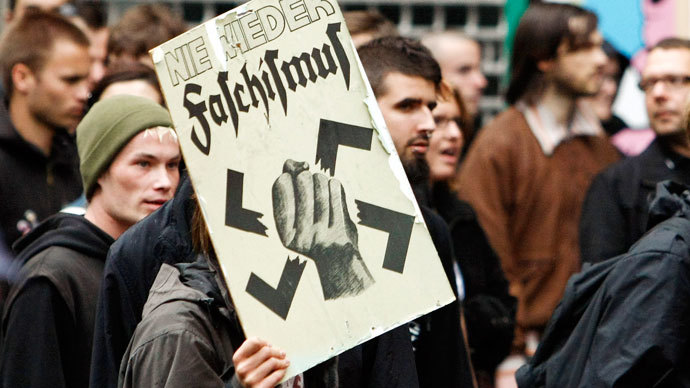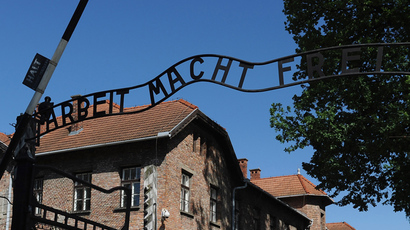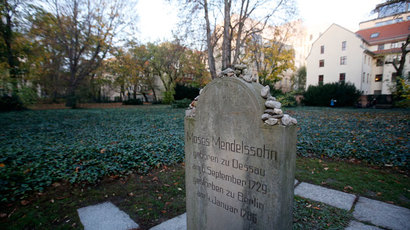Munich protesters slapped with €200 fine for blocking neo-Nazi march

Munich authorities have dished out fines of 200 euro each to 20 demonstrators who peacefully blocked a neo-Nazi march two years ago. Those fined have accused the powers that be of going above and beyond the call of duty to track them down.
In January 2012, anti-fascist protesters confronted a group of neo-Nazis outside a historic gate in Munich’s historic center, stopping the far-right demonstration in its tracks. No violence was reported, but two years on, 20 of the anti-fascist demonstrators have been slapped with the steep fines.
"Of course I won't pay the fine," Siegfried Benker, former Green Party leader on the Munich City Council who took part in the action, told the Local’s German edition. Benker, who accused the relevant authorities of being excessively “meticulous” in tracking down the anti-fascist activists, said the authorities’ decision to punish them is “absolutely not in the public interest."
The protesters were incensed that the far right marchers decided to play the Pink Panther theme song at their rally just weeks after the National Socialist Underground (NSU) terror cell put out a grisly video featuring the same song.
The 15 minute video featured the Pink Panther cartoon character going on a tour of Germany, making stops at the sites of nine of the extremist group’s murder victims. The group was believed responsible for at least 10 murders, as well as a 2004 bombing in Cologne in which 22 people were injured. The trial of surviving member, Beate Zschäpe, is still ongoing.
"Just consider the timing,” Benker said. “It was only weeks after the NSU video came out. Playing that song was clearly an endorsement of the murders they committed.”
Benker was also among a group of protesters who blocked a mini-bus carrying far-right protesters to an anti-immigration rally later that year. Eighteen of those protesters were subsequently fined.
During the January 2012 protest, police did not move to intervene, but rather stood back and took photographic and video evidence which was later passed on to municipal authorities.
To the chagrin of those fined, the police spent the next two years analyzing the available footage in order to identify those who had blocked the march.
"They engaged in relentless investigations to track us down," Benker said. "And we're talking about what was, undeniably, a peaceful protest."
Baker told the Local the city council department responsible for dishing out the fines had the option to drop their investigation, but instead chose to "focus disproportionately" on identifying the anti-Nazi protesters rather than neo-Nazis.
The authorities defended their probe, saying it was part and parcel of normal procedure. They added it was their duty to take a politically neutral stance and not waive fines based on “personal conviction”.
The department’s spokesperson, Daniela Schlegel, however, told the Süddeutsche Zeitung that city authorities in fact encouraged anti-Nazi initiatives.
Benker accused Munich police of taking a harsher stance towards left wing demonstrations than right-wing ones because of “an outdated right/left wing schema."
He further said the city’s actions would serve “to discourage people from attending anti-Nazi protests."
Those who were fined have filed an official appeal against the penalty. A ruling is expected in the coming weeks.














